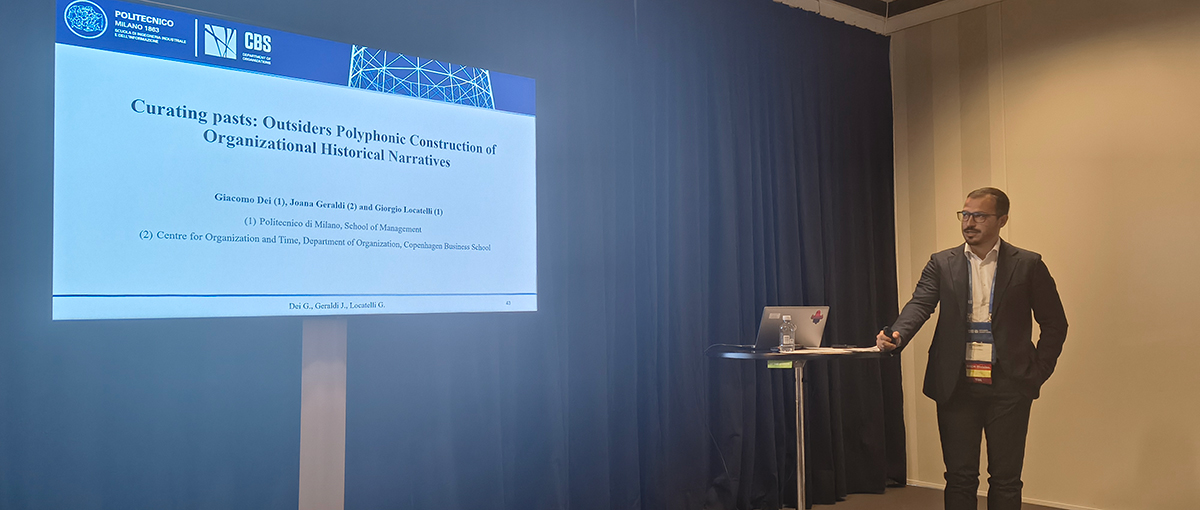award
A POLIMI School of Management research recognised at the Academy of Management Annual Meeting 2025

Giacomo Dei, a PhD candidate at the POLIMI School of Management of Politecnico di Milano, has been awarded the Ronald B. Shuman Award at the Academy of Management Annual Meeting 2025 for a study on how historical narratives influence decision-making in major infrastructure projects.
The Annual Meeting of the Academy of Management is the world’s leading event for advancing research in management and organisations. Each year, it brings together thousands of scholars to share knowledge, foster networks, and address the key challenges of the 21st century.
At the 2025 edition held in Copenhagen, Giacomo Dei, PhD candidate at the POLIMI School of Management of Politecnico di Milano, received the prestigious Ronald B. Shuman Award for the Best Student Paper of the Management History Division. The award was granted for his contribution, “The Battle of Narratives: How outsiders create pasts to shape Fehmarn Belt Link’s prospects”, co-authored with Joana Geraldi and Giorgio Locatelli.
The research addresses a crucial issue for the planning and governance of large-scale infrastructure projects: how external actors (such as the media, interest groups and political parties) construct historical narratives to guide current decisions and shape future project outcomes. The case study focuses on the Fehmarnbelt Fixed Link, the immersed tunnel that will connect Denmark and Germany, but the findings provide practical insights for managing, governing, and communicating complex projects in a variety of contexts.
Three key levers emerge for the strategic management of stakeholders:
- Continuity: framing the project within recognised historical trajectories (e.g., European integration, territorial connectivity) strengthens the legitimacy of investment decisions and project planning.
- Lessons learned: selectively drawing on past experiences (e.g., financing models, governance structures, environmental mitigation) allows potential bottlenecks to be anticipated and contracts, permits and interfaces along the supply chain to be adjusted.
- Recurring patterns: identifying in advance common scenarios (delays, cost overruns, disputes) enables the proactive design of countermeasures.
The key message is that narratives are an integral part of project architecture. Mapping who communicates what becomes a strategic activity in itself, translating into scenarios, communication milestones, measurable success criteria, and contracts that incorporate transparency, data and environmental monitoring requirements. The aim is not to impose a single dominant narrative, but to orchestrate multiple voices so that the project gains support from all stakeholders.
This recognition highlights the scientific excellence of the POLIMI School of Management and its ability to generate knowledge that supports strategic decision-making in complex contexts.





